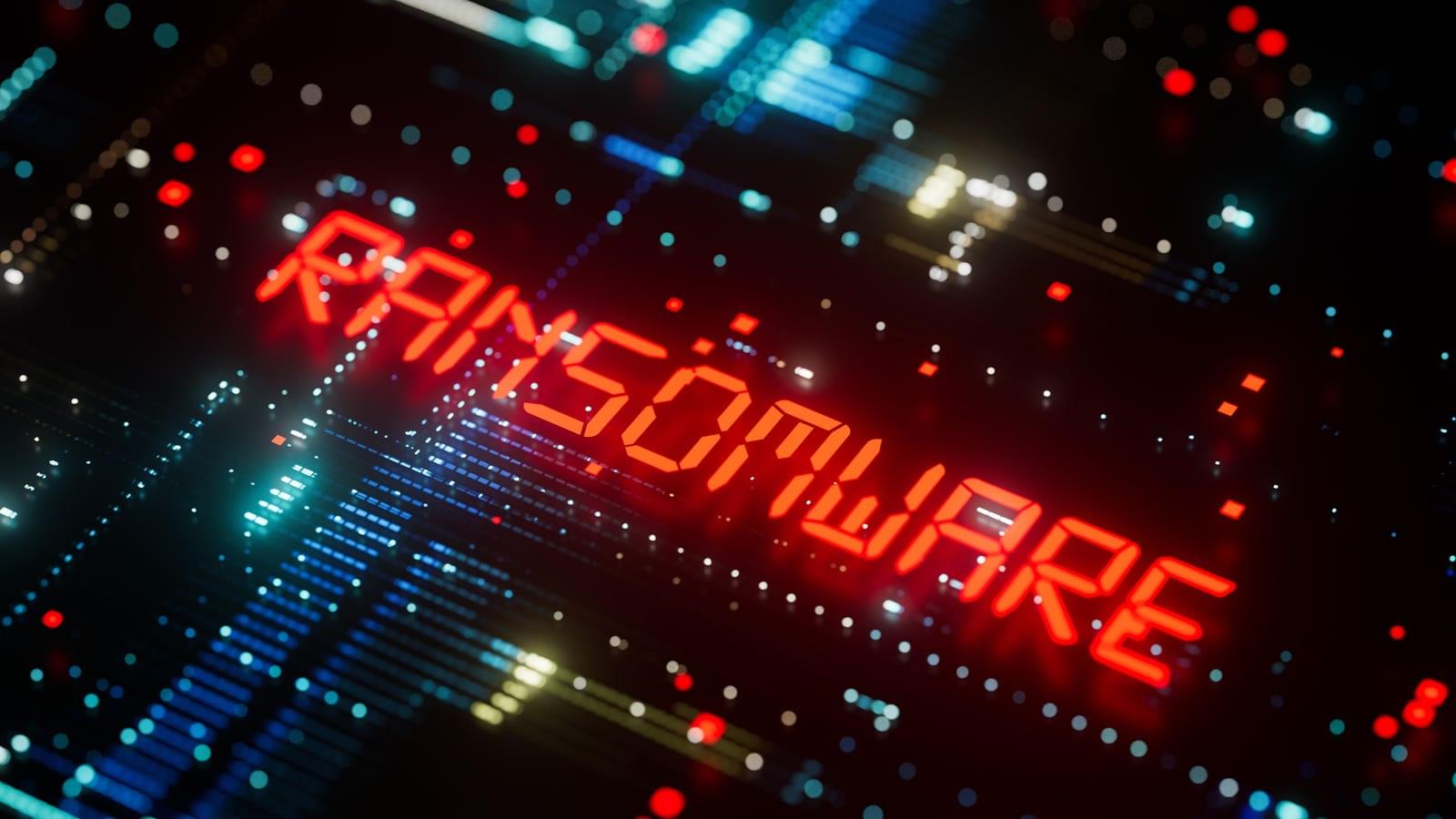Ransomware has always been more than a technical risk—it’s a business, a weapon, and a psychological warfare tool.



Agrivoltaics describes a process for the simultaneous use of agricultural land for food production and PV power generation. The technology enables the efficient dual use of agricultural land: photovoltaics on open spaces can be substantially expanded without significantly using up valuable resources of fertile arable land. Targeted light management optimizes the yields from PV and photosynthesis. In addition, value creation in the region and rural development are promoted, as agrivoltaic projects are ideally suited to be supported in a decentralized by farmers, municipalities and small and medium-sized enterprises. This results in new, economically viable farming options for agriculture.
We are working on the implementation and further development of agrivoltaics in industrial and research projects.
Opportunities in Agrivoltaics.
Agrivoltaics offers great opportunities for agriculture and climate protection. In their foreword, the two Federal Ministers Anja Karliczek and Julia Klöckner support the promising concept of combining agricultural production and renewable electricity generation on the same land.
The guideline provides information on the possibilities and advantages of agrivoltaics, offers an overview of its potential and the current state of technology, and presents practical advice for agriculture businesses, municipalities and companies.
Aside from more efficient land use, agrivoltaics can help reduce water consumption in agriculture, generate stable additional sources of income for farms, and make many farms more resilient against harvest losses. The early involvement of local citizens is a key criterion for success in the concrete implementation of agrivoltaics. https://www.ise.fraunhofer.de/en/publications/studies/agrivo…ition.html

Several artificial intelligence models are now advanced enough to pass the three-part chartered financial analyst exam, even the most difficult Level III test.
Previous research, particularly from two years ago, had found AI could clear Levels I and II of the exam, but it struggled with Level III, due to the essay questions.
The new study was developed by researchers from New York University Stern School of Business and Goodfin, an AI-powered wealth-management platform.
For humans to pass the prestigious, three-part chartered financial analyst exam, it typically takes around 1,000 hours of studying over the course of several years. New research found that the technology underpinning a slew of artificial intelligence models is now advanced enough to pass even the most difficult – Level III – mock exams in a matter of minutes.
The new study – developed by researchers from New York University Stern School of Business and GoodFin, an AI-powered wealth management platform – evaluated 23 large language models on their ability to answer multiple choice and essay questions on mock CFA Level III exams. They found frontier reasoning models, including o4-mini, Gemini 2.5 Pro and Claude Opus, were able to use “chain-of-thought prompting” to successfully pass.
Previous research, particularly from two years ago, had found artificial intelligence could clear Levels I and II of the exam, but it struggled with Level III, due to the essay questions. However, the technology has evolved so rapidly that the researchers wanted to know whether the models could handle, “specialized, high-stakes analytical reasoning required for professional financial decision-making.” The third CFA exam is primarily focused on portfolio management and wealth planning.


Libraesva rolled out an emergency update for its Email Security Gateway (ESG) solution to fix a vulnerability exploited by threat actors believed to be state sponsored.
The email security product protects email systems from phishing, malware, spam, business email compromise, and spoofing, using a multi-layer protection architecture.
According to the vendor, Libraesva ESG is used by thousands of small and medium businesses as well as large enterprises worldwide, serving over 200,000 users.

OpenAI and NVIDIA today announced a letter of intent for a landmark strategic partnership to deploy at least 10 gigawatts of NVIDIA systems for OpenAI’s next-generation AI infrastructure to train and run its next generation of models on the path to deploying superintelligence. To support this deployment including data center and power capacity, NVIDIA intends to invest up to $100 billion in OpenAI as the new NVIDIA systems are deployed. The first phase is targeted to come online in the second half of 2026 using the NVIDIA Vera Rubin platform.
“NVIDIA and OpenAI have pushed each other for a decade, from the first DGX supercomputer to the breakthrough of ChatGPT,” said Jensen Huang, founder and CEO of NVIDIA. “This investment and infrastructure partnership mark the next leap forward — deploying 10 gigawatts to power the next era of intelligence.”
“Everything starts with compute,” said Sam Altman, cofounder and CEO of OpenAI. “Compute infrastructure will be the basis for the economy of the future, and we will utilize what we’re building with NVIDIA to both create new AI breakthroughs and empower people and businesses with them at scale.”
Waymo’s partnership with Lyft in Nashville highlights advancements in robo-taxi safety, but the company faces significant challenges from Tesla’s established infrastructure and competitive landscape in the rapidly evolving autonomous vehicle market ## Questions to inspire discussion.
Tesla’s Robotaxi Advantage.
🚗 Q: How does Tesla’s manufacturing efficiency give it an edge in the robotaxi market? A: Tesla can build cars for one-third the price of competitors, with built-in Shepherds and the ability to manufacture at cost for FSD or robotaxi network use.
🌐 Q: What makes Tesla’s global expansion strategy unique? A: Tesla’s global approach and rapid execution allow it to go anywhere once FSD works, making it difficult for competitors to match its scale and speed.
🧠 Q: How significant is Tesla’s Full Self-Driving (FSD) technology? A: Tesla’s FSD is a gigantic advantage, with take rates tripling to double digits and expected to triple again, making it hard for others to compete.
Waymo’s Progress and Challenges.

A ‘spherical’ AI model finds hidden themes in large collections of headlines and other short texts.
From tweets and chat messages to headlines and status updates, short bursts of text are everywhere. These snippets may be brief, but they are packed with the potential to reveal anything from emerging trends to business decisions or circulating misinformation.
While AI is becoming increasingly adept at extracting meaning from long-form text, it still struggles with these bite-sized ones.
Tesla’s new energy products, such as the Mega Pack and Megablock, have the potential to revolutionize energy storage and generation, drive decentralization and grid resilience, and support widespread AI adoption, potentially driving its energy business to $50 billion in revenue and generating $10 billion in annual gross margin ## Questions to inspire discussion.
Energy Storage and Grid Management.
🔋 Q: How does Tesla’s Mega Pack improve energy storage? A: Tesla’s Mega Pack offers 20% more energy density and 25% more energy per unit, providing 8 hours of storage to expand the total addressable market for renewable energy.
⚡ Q: What is the Mega Block and how does it enhance efficiency? A: The Mega Block is a transformer and switchgear all-in-one unit that simplifies processes, reduces cabling and on-site assembly, making the product more streamlined and efficient.
🔌 Q: How do battery storage systems compare to traditional grid power? A: Battery storage is significantly more capable at dumping power instantly compared to the grid, which needs to spool up and down, making it better for managing wild swings in data center load profiles.
Data centers and AI energy demands.

To study such patterns of early AI adoption, we extend the Anthropic Economic Index along two important dimensions, introducing a geographic analysis of Claude.ai conversations and a first-of-its-kind examination of enterprise API use. We show how Claude usage has evolved over time, how adoption patterns differ across regions, and—for the first time—how firms are deploying frontier AI to solve business problems.